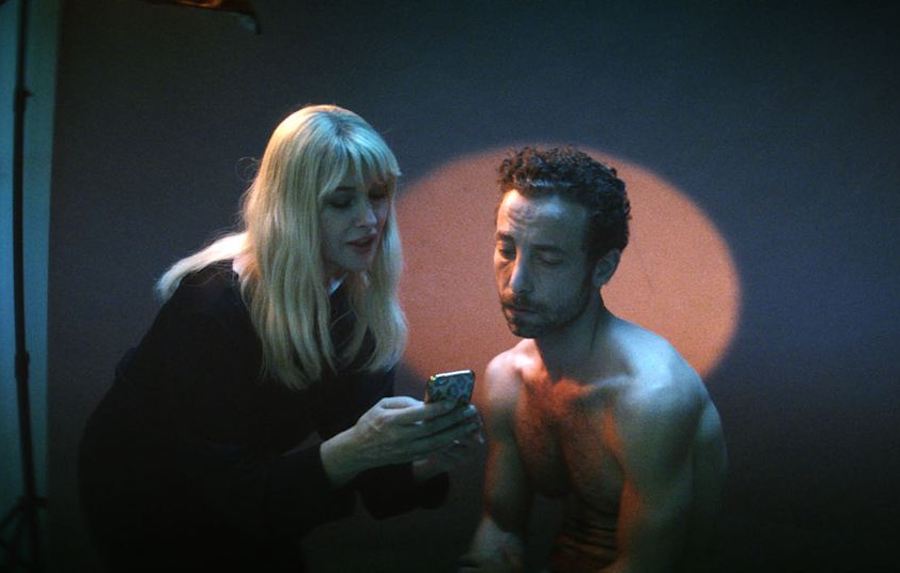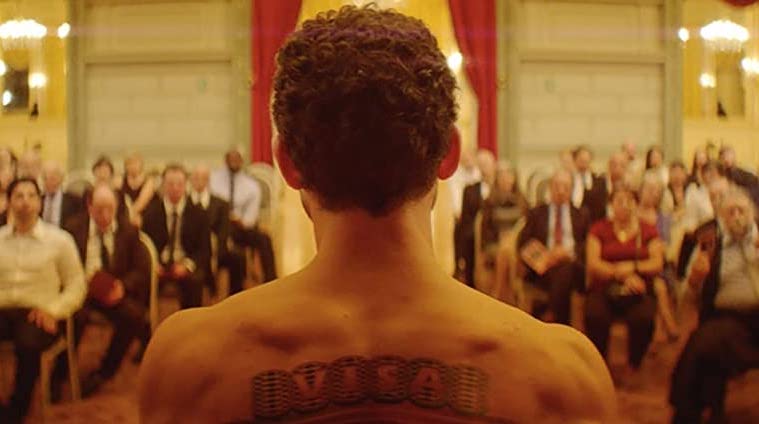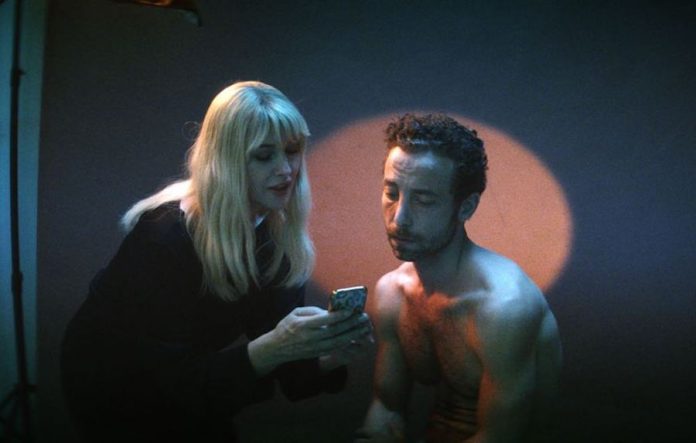DUBAI: Tunisian director Kaouther Ben Hania explores the most sensitive of subjects with dignity and restraint.
Her 2017 Cannes Un Certain Regard title “Beauty and the Dogs” dealt with the distressing subject of rape, but managed to present a balanced view of a woman’s struggles in the face of an unfeeling administration and community.
Her latest, “The Man Who Sold His Skin,” which was screened at Venice last September and is Tunisia’s offering for the Oscars in the international category — and it made the shortlist — focuses on a highly provocative subject of a Syrian refugee in Beirut forced to sell his skin so that he may escape the brutality of his country’s regime.
The director weaves burning socio-political issues, including the refugee crisis and human rights concerns, into her narrative in an intriguing manner, even managing to pull off biting satire of the art world.
Shot by Christopher Aoun, who was responsible for the stunning visuals in the Oscar-nominated “Capernaum,” the movie, despite its heavy subject, runs along a fairly sunny path.
Sam, an admirable performance from Yahya Mahayni, is a young man from Raqqa who is deeply in love with the beautiful Abeer, played with natural grace by Dea Liane.
In flashback on a train, we find out the sweet but sad story of the star-crossed-lovers. They want to hold hands, maybe even kiss, but are kept apart by the community and the passengers on board. It is just one of the film’s many memorable moments.

Sam has to leave his city after a stint in jail otherwise he will be killed, he tells Abeer, hoping that she will wait for his return.
He flees to Lebanon, where life presents an unusual opportunity. A chance encounter with a celebrated US artist, Jeffrey Godefroi, played by Flemish actor Koen De Bouw, and his smart assistant, a very blonde Monica Bellucci as Soraya (this casting seems like a marketing gimmick) comes with this offer: Sam can sell his back to Godefroi in return for the freedom to travel.
The artist uses Sam’s bare back to carve out an enormous tattoo of a Schengen visa, which is required to enter Europe. This idea probably comes from Tim Steiner, who sold his skin to the Belgian artist Wim Delvoye.
Sam has to sit for long hours at various museums where people flock to see this human painting. Of course he is paid handsomely, something unthinkable back home. Also, he is now armed with that visa and able to cross borders with ease.
Viewers may have to draw some conclusions themselves, but there is a definite underlying discussion about the plight of Syrians in Europe in the 21st century and how their trauma has been exploited for the sake of art.
Ultimately, what Hania is aiming at is to shock viewers by presenting a human being as a mere commodity. In a way similar to the themes seen in the Cannes Palme d’Or winner “The Square” and Tom Ford’s “Nocturnal Animals,” the Tunisian work is a tongue-in-cheek commentary on the modern art world, where just about everything goes.


